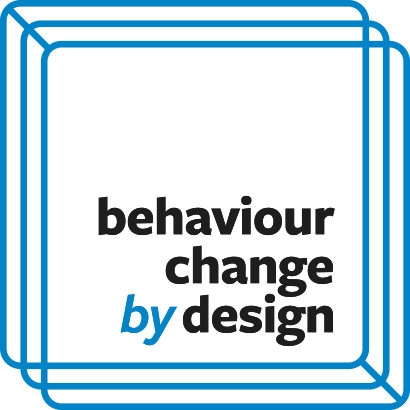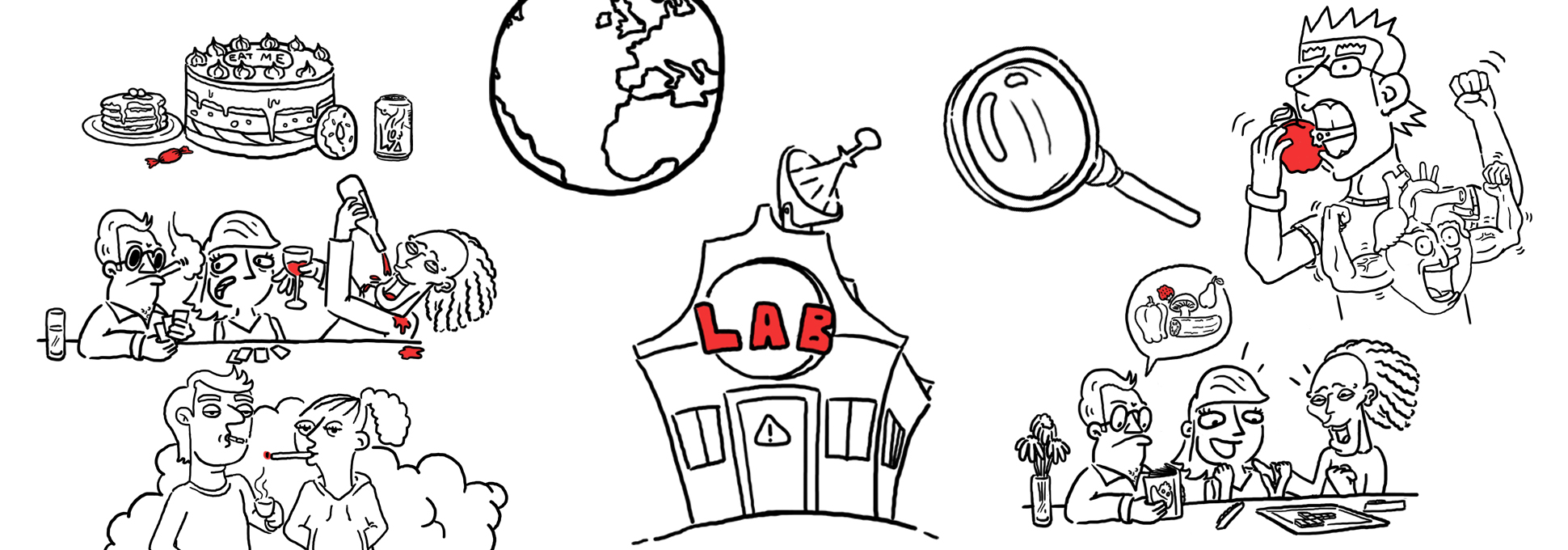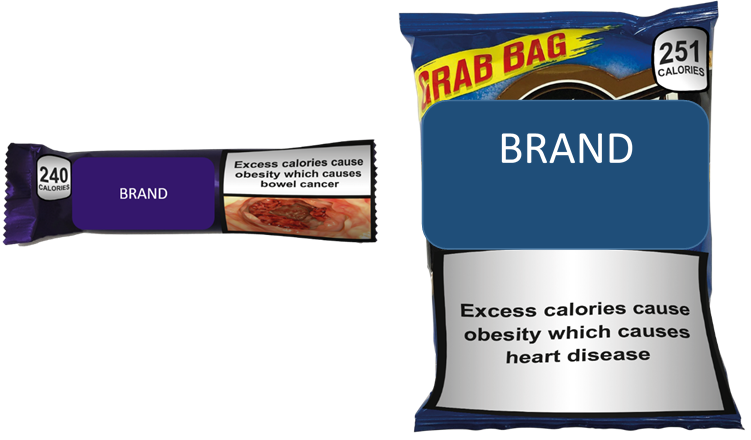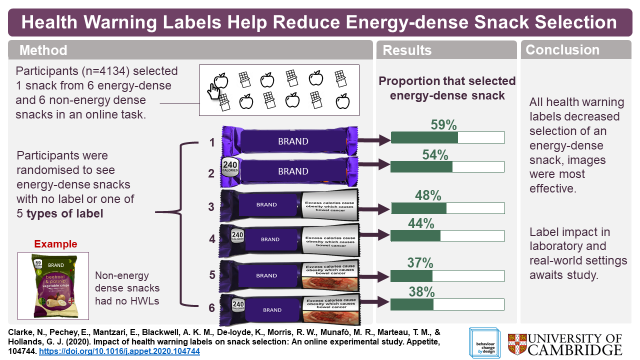



Posted: July 2, 2020
Excessive consumption of energy-dense foods – such as crisps, biscuits and confectionary – increases the risk of obesity, which in turn increases the risk of heart disease, type 2 diabetes and most non-smoking-related cancers. Evidence from tobacco research suggests that health warning labels (HWLs), especially those that use images showing the health risks of smoking, can change smoking behaviours. The current study aimed to investigate the impact of HWLs – communicating the adverse health consequences associated with excess energy consumption – and calorie information on selection of energy-dense snacks in an online setting. Negative emotional arousal and acceptability to the labels were also measured.

We recruited 4134 adults to take part in this online study. Participants were randomised to one of six groups varying in the labels attached to energy dense snacks:
1. Image-and-text HWL + calorie information
2. Image-and-text HWL
3. Text-only HWL + calorie information
4. Text-only HWL
5. No HWL + calories information
6. No HWL or calories
The HWLs showed the links between consuming excess calories, obesity and bowel cancer, heart disease and type 2 diabetes
Participants were shown 12 snacks – 6 energy dense (e.g. chocolate bars, crisps) and 6 that were not energy dense (e.g. fruit, cereal bars, yoghurt) and asked to select one to eat.
Fewer people selected an energy-dense snack in all the label groups, compared to the no label group (no label: 59%; calories only: 54%; text-only HWL: 48%; text-only HWL with calories: 44%; image-and-text HWL: 37%; image-and-text HWL with calories: 38%). Participants were least likely to select an energy-dense snack if it displayed an image-and-text HWL. HWLs with an image also led to highest levels of negative emotional arousal and were the least accepted.
These results show that HWLs communicating the adverse health consequences associated with excess energy consumption can reduce selection of energy-dense snacks in an online setting. Their impact in more real-world environments, such as laboratory and field settings, now needs testing.

To read the findings of the study in full, click here.
Clarke, N., Pechey, E., Mantzari, E., Blackwell, A. K. M., De-loyde, K., Morris, R. W., Munafò, M. R., Marteau, T. M., & Hollands, G. J. (2020). Impact of health warning labels on snack selection: An online experimental study. Appetite, 104744. https://doi.org/10.1016/j.appet.2020.104744